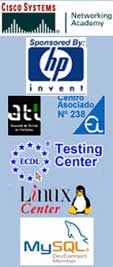Formacion, empleo: The management of facts and mistakes |

| Despite the bad social concept about mistake, we know that it is inherent to the human being and their activity. We also know that right or wrong management of mistake will turn it into the success or failure of people, companies or societies.
We need to do right, complete management of our facts in order to get the right management of mistakes.
January 2012
The voluntary fact, as an element of the human activity takes several phases.
The phases of human activity.
Human activities are directed to one target. A long-term activity is usually divided into more little targets. For example the student´s studies is divided into partials goals, the subjects.
Both, in long-term and short time targets, human activity has several phases of different duration.
Definition and evaluation of target.
Planification.
Decision.
Execution.
Collection of results.
Analysis and evaluation of results.
The establishment and evaluation of the target.
This is the phase where somebody, a student, a worker, a businessman or society in general defines a target or goal which is a material or intellectual gift. Besides, people evaluate the possibilities, means, resources and time they need in order to get their target. Evaluation will allow them to accept or reject the goal.
Motivation is essential In this period of time. It measures the strength or the importance the target has for the subject and, at the same time, it determines the amount of resources we are willing to sacrifice in order to get the result.
Planification.
A plan is a predictive mental representation that the subject makes up on stages, elements and circumstances in relationship with the human fact.
The plan arranges the information available and the one it discovers during the development of the action (the plan can change in the process of searching).
In this phase the subject defines the way or ways in order to achieve the target and assign the resources they need in each point of the activity.
Planning designs procedures and resources in order to maximize the probability of positive results and minimize the possibility of negative results.
Formation and creativeness are essential here.
Better education will allow us to go on more safely, more correctly and in less time.
Higher creativity allows us to find simple solutions (possibly original) to complex problems. It helps us to get shortcuts to reach one point using less effort, cost and time.
Planning is essential, especially in art or science activities. To plan an experiment (like a masterpiece) is very important in order to get good results and to deduce if these confirm the original hypothesis.
Decision.
Decision is a inner, voluntary action that triggers other necessary facts in order to reach the target.
In this phase the expected value, motivation, emotional intelligence, resources and personality are essential.
At the time of decision, we evaluate the possibilities of success in relationship with the available resources. Besides, we consider if the expectations of success are worthwhile. We also need to consider the loss if we make a mistake and the possibilities of repeating an attempt.
When we make a decision, we are betting on our idea based on the conviction of success and pushed by emotional intelligence.
This is the most critical moment of the human action, because when we make a decision the tracks are defined and other kind of choices are disabled.
A strong motivation and a powerful personality will push the action more easily even with less amount of resources.
A lot of resources can stimulate to action, even with a weaker motivation or personality.
The execution or elaboration of action.
During the execution of an action, we are starting on resources and methodology, in order to get the result.
In here, motivation, formation, experience and tenacity are especially important.
Motivation keeps the strength of impulse which pushes us to the results. Formation makes advance easier and reduces the necessary resources in order to get the results. Experience allows us go through the difficulties of advance. Besides, experience allows us to use less resources. Finally, tenacity is the capacity of repeating one action in order to overcome obstacles in our advance.
This phase is especially delicate because it requires some capacities of the subject in order to overcome material and intellectual difficulties.
Material difficulties will probably be insufficient resources to overcome the obstacles. Intellectual difficulties are more dangerous because they can make you abandon your aim easily.
The most dangerous and most important of these latter is the fear of mistake and the fear of criticism from other people. These circumstances can push us to inaction and therefore, to the loss of talents .
When activity is a routine this problem does not happen because actions have been experimented before and we already know the necessary resources, difficulties and results. We only need to solve the possible unexpected variations.
When we deal with innovation activities (new designs, artistic or scientific activities) we need to get solutions to uknown problems. That involves major effort, more time, more resources and more uncertainty. All of these demand more creative, more motivated, more tenacious personality.
There are two attitudes that prevent the normal advance (of people, companies or societies): on the one hand, inaction, due to the fear of mistake and on the other hand, the continuous action making of the same mistake in a loop (this happens when analysis has not happened in the phase of results).
The gathering of results.
When action is executed the subject needs to be able to recognise the results, whatever they can be: expected, unexpected or surprising results.
The subject needs to use some way of measuring that allows us to know how different actual results are from expected results.
If action is a routine, it will be easy to recognise and measure results, because these are a copy of other previous ones. But if the action is new, it is necessary to have an open way of mind and good formation so as to recognize possible or unexpected results, which might remain unconspicuous otherwise.
©ceintec.com Encuentra más articulos de Notícias de Tecnología, Empresa, Formacion y Trabajo en Ceintec Consultoria de Formación y Empleo
|
|  Consigue esta tablet Samsung
Gratis!
|
|
|
|








